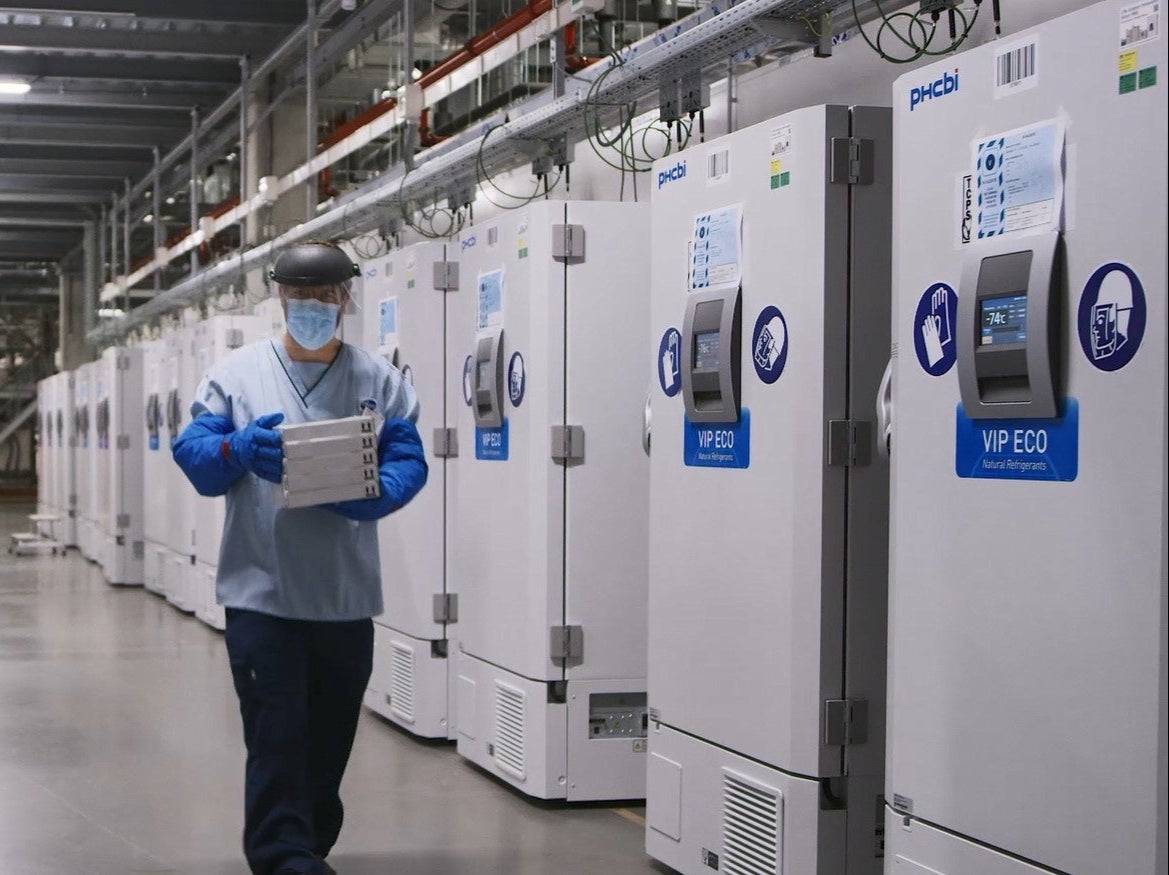Covid vaccine: Parents of disabled children should be prioritised, says charity
Kindred says the respite provided by schools, which reopened in August, is preventing a crisis in families where a child has high care needs

Your support helps us to tell the story
From reproductive rights to climate change to Big Tech, The Independent is on the ground when the story is developing. Whether it's investigating the financials of Elon Musk's pro-Trump PAC or producing our latest documentary, 'The A Word', which shines a light on the American women fighting for reproductive rights, we know how important it is to parse out the facts from the messaging.
At such a critical moment in US history, we need reporters on the ground. Your donation allows us to keep sending journalists to speak to both sides of the story.
The Independent is trusted by Americans across the entire political spectrum. And unlike many other quality news outlets, we choose not to lock Americans out of our reporting and analysis with paywalls. We believe quality journalism should be available to everyone, paid for by those who can afford it.
Your support makes all the difference.Parents of children with complex disabilities should be among the first to receive a Covid-19 vaccine, a charity has said.
In a letter to Scottish health secretary Jeane Freeman and deputy first minister John Swinney, disability charity Kindred said parents fear catching the virus and being unable to look after their vulnerable children.
It said the majority of parents of disabled children are struggling to cope during the pandemic and are getting by on an average of just five hours of broken sleep a night.
The figures come from a survey by the charity of 42 parents whose children have complex disabilities and life-limiting conditions.
It found that more than a third of parents received no respite care before the pandemic and this dropped to 60 per cent after it began.
Kindred said the respite provided by schools, which reopened in August, is preventing a crisis in families where a child has high care needs.
Alex Davey from East Lothian cares for her six-year-old son Benjamin, who is fed through a tube and has epilepsy and a need for overnight ventilation.
When the pandemic began, Benjamin's respite and at-home care services were stopped.
Since March, he has been taken to hospital six times.
Ms Davey said her main concern is that she and her husband will get Covid-19, leaving them unable to care for their son.
Sophie Pilgrim, director of Kindred, said the pandemic has had a devastating impact on families of children with complex needs.
She said: "Many families started shielding before schools closed with the loss of all care and support.
"Some of these children require two to one support in school and other care settings, and yet parents had to cope from March to August, many with no help at all.
"As the vaccine becomes available, we must prioritise parents who are providing medical care for their children and cannot afford to get sick themselves."
She added: "Many parents received no respite care before the pandemic, and those that did lost their care with lockdown. Serious sleep deprivation puts parents at risk of depression, accidents and long-term conditions.
"We need to recognise the long-term exhaustion of these families. Special schools are all the more important and need to be supported to carry on their excellent work and to keep their doors open."
Responding to the charity's plea, a Scottish government spokesperson said: "The health secretary has already committed to providing more details to parliament on the delivery of Covid-19 vaccines and, with the agreement of parliament, she aims to do this shortly.
"We are working with the Welsh government, the Northern Irish government, and the UK government to procure Covid-19 vaccines on a four nations basis.
"We will prioritise to protect those considered to be most at risk, in line with the forthcoming final advice from the Joint Committee on Vaccinations and Immunisations (JCVI).
"All NHS boards stand ready to assist with the delivery of the vaccine to the local population as part of the national plan."
Join our commenting forum
Join thought-provoking conversations, follow other Independent readers and see their replies
Comments